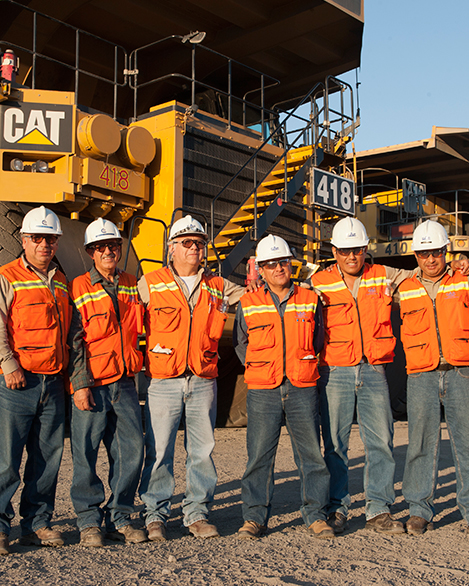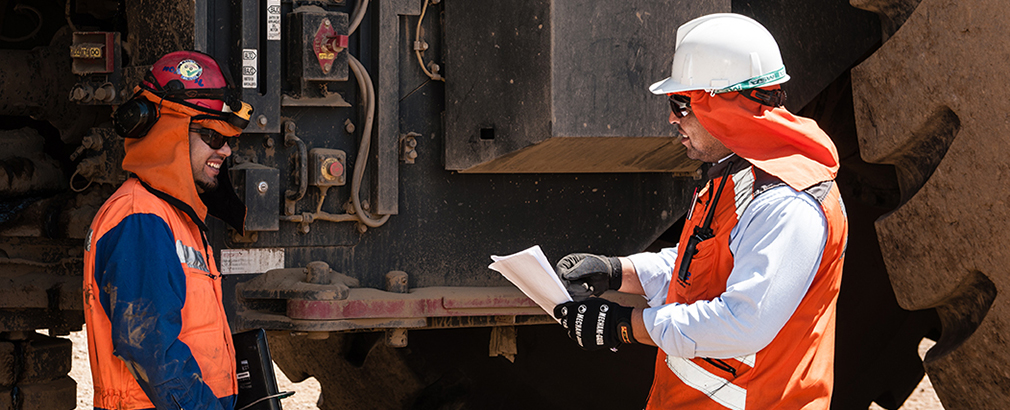The CAP Group promotes unionization and collaborative relationships with its workers. This is so because 76% of its workers belong to a work union.


The company’s Corporate Policy on Persons & Sustainability, approved in 2016, covers the issues of the relationships of the Group with its workers, its representatives and the families of its workers. This policy assigns priority to the implementation of all regulatory labor requirements as well as those stemming from conventions, and it promotes the adoption of transversal good practices in the companies.
The Group has a total of 19 work unions and 76% of all its workers are indeed unionized. This indicator is even higher among operative personnel. For example, at Cintac, 100% of its plant personnel are unionized. On the other hand, the Minas El Romeral work union celebrated its 60th anniversary in 2016; all of which exemplifies CAP’s long history of good labor relationships with its work unions.
CAP Mineria has work unions in each of its operations. At Cap Acero and Procesamiento, the work unions group their workers by trade and operation, respectively. At CAP Infraestructura, given the low number of workers, has not work unions; just like Tupemesa in Peru. At TASA, on the other hand, the situation is different because in Argentina work unions are organized at the national level and not by company.
The continuous, cordial and transparent relationships are reflected in the negotiation processes as the culmination of sustained work between the parties. The new collective bargaining agreement with CAP’s Work Union N°1 became effective as of 2016, leaving the company’s two main work unions with effective agreements until April 2019. In the case of Cintac, a new 4-year collective bargaining agreement was reached with the Lonquen Plant Work Union.
During 2016 there were no conflicts with the workers of any of the companies of the Group.
| Minería | Acero | Cintac3 | CAP S.A. | |||||||||
|---|---|---|---|---|---|---|---|---|---|---|---|---|
| 2014 | 2015 | 2016 | 2014 | 2015 | 2016 | 2014 | 2015 | 2016 | 2014 | 2015 | 2016 | |
| N° of labor union | 13 | 13 | 13 | 3 | 3 | 3 | 2 | 2 | 2 | 1 | 1 | 1 |
| % Unionized workers | 79% | 82% | 72% | 97% | 99% | 97% | 63% | 66% | 66% | 40% | 38% | 38% |
| % Workers covered by collective bargaining | 100% | 100% | 100% | 100% | 100% | 100% | 49% | 66% | 66% | 40% | 38% | 40% |
| Consecutive years without a labor strike | - | - | 41 | - | - | 21 | - | - | 21 | - | - | 41 |
3Do not include TUPEMESA or TASA.
The steel industry continues to face a deterioration of its margins and a loss of profitability because of an excess steel production capacity. The foregoing has derived in increasing exports by countries with overcapacity at prices undoubtedly incompatible with their costs.
Thanks to the support of the representatives of CAP Acero workers, who participated actively alongside executives of CAP and of other sector companies, and to municipal and regional authorities, in 2016 the National Commission responsible for investigating price distortions of imported goods (CNDP, in its Spanish acronym), admitted the dumping complaint against concrete steel bars imported from Mexico and the request to increases and extend the safeguards against imports of wire rods and its derivatives, mainly from China.
Although the percentages thus applied solves the problem only partially, it recognizes the value of our domestic industry.